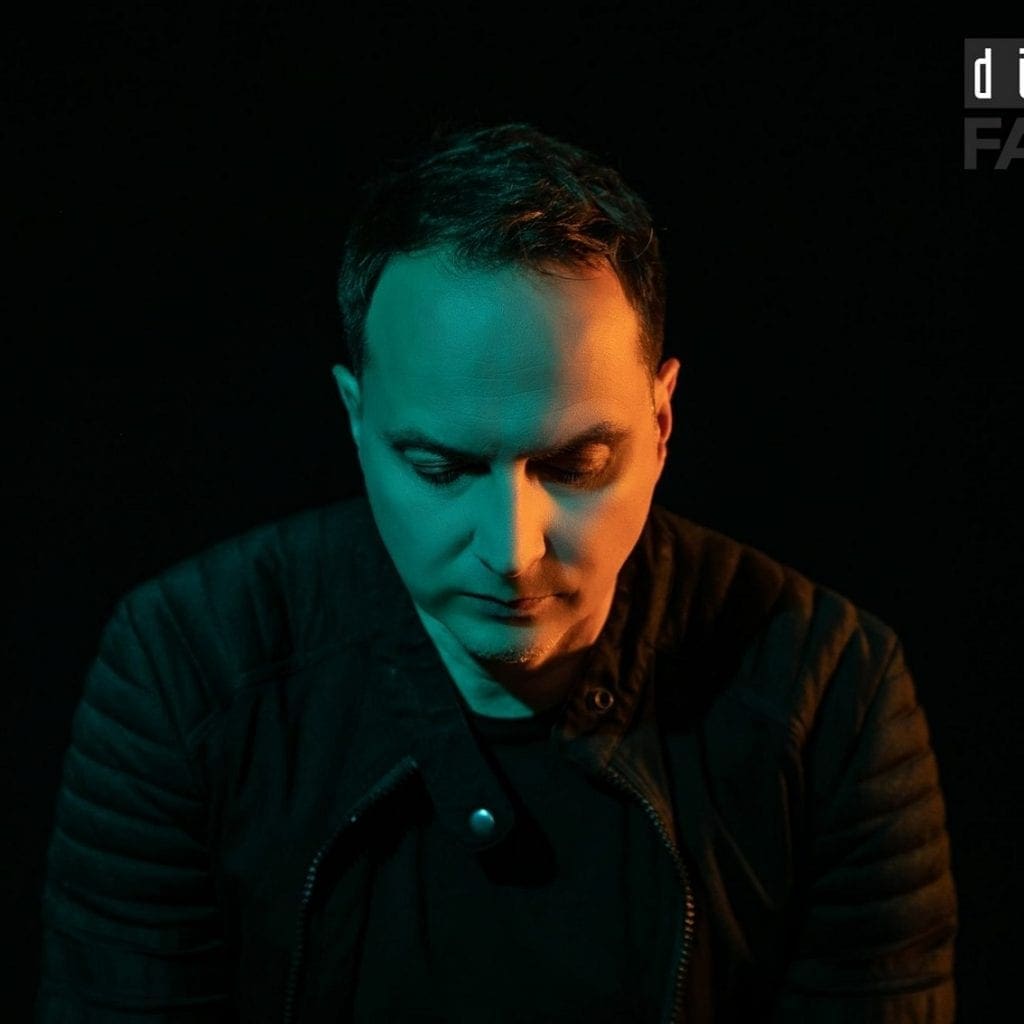‘Click Interview’ with Digital Factor: ‘Many Releases Today Are Unfortunately Very Uniform’

Hailing from the former Eastern part of Germany, DIGITAL FACTOR rapidly became a renowned and successful EBM formation during the 90s and early Millennium years. The band released multiple noticeable albums on the defunct Hypnobeat. They moved on releasing a few more productions after 2000, the last album “Trialog” being released in 2011. Core member Mike Langer brought DIGITAL FACTOR alive, started working on new material and found a deal with Alfa Matrix. The EP “Come With Me” released in 2020 was an appetizer to the this year unleashed new opus “A Chemical Process”. The work is still driven by EBM vibes, but also into Minimal-Electro treatments and Electro-Pop vibes. This is a new chapter in the band’s history and I talked about it with Mike Langer.
(Courtesy by Inferno Sound Diaries)
Q: Ten years have passed since the “Trialog”-album (2011) so how does it feel to be back with a new opus and how would you introduce DIGITAL FACTOR in 2021?
Mike: It is of course always a good feeling when you start with new material and especially when you get so much positive feedback on it. Usually this is more of a feedback when you’re on tour. But due to the Corona pandemic, significantly more is happening via social media.
DIGITAL FACTOR was and is a German Electronic band since 1993. We were one of the first bands in this genre from Eastern Germany to get a record deal after the fall of the Berlin Wall and to release a CD.
In 2020/2021, the musical concept of DIGITAL FACTOR has come back to where it began, with the fascination of Electronic sound generators.
Q: The new album “A Chemical Process” clearly reveals a different approach in sound and influences. How do you look back at your earlier work and what inspired and influenced you to compose new songs?
Mike: The early productions of DIGITAL FACTOR were already shaped by the enthusiasm for synthesizers and the way you can work with them. Now, over 20 years later, you only really know how the parts work properly and you get to work in a much more targeted manner. So you can get a lot more out of a sound generator than we thought it could be possible at the beginning of our musical career. What has been preserved is the joy of every new instrument in the studio. In contrast to the past, every synthesizer today has a special sound function within a production. Currently I have been working on two digital remasters of old DIGITAL FACTOR releases and even if you would and do a lot of things differently today, I’m still discovering songs on the old albums that are still really cool today.
Q: Did you see main and noticeable changes in the music industry and the scene today compared to the 90s when DIGITAL FACTOR started?
Mike: In the 90s, the music industry was shaped by people who were enthusiastic about music. Of course, the CD business was also important, but everyone was keen to experiment. When bands met, it was always a kind of workshop for music and instruments. Today everything is usually much more busier, maybe a little more mellow. So I’m very happy about the collaboration with Alfa Matrix, because music enthusiasts still work here and this complements the creative environment that a musician must have.
Musically, many releases today are unfortunately very uniform, you often hear the same presets from software synthesizers. I don’t mean to say that this is bad music, but experimentation is increasingly lost and with it the independence of the music. In this respect, it is important to me that DIGITAL FACTOR develops again and again and also challenges itself musically. A band’s musical concept should never be finished. If you think you have finished with it, then you can only be monotonous and You will become a copy of Yourself… boring.
Q: You first started composing all songs on guitar and next transposed them to synthesizers, right? Tell us a bit more about this way of working? And what has been the input and importance of bassist and guitarist Georg Kostron who contributed to the work?
Mike: Interestingly, I’ve read this somewhere before and don’t even know where the rumor came from. In fact, I’m a pretty bad guitar player and I’m learning this a little from my daughter taking guitar lessons. But she is much more better than me at that. I originally learned piano and this is often the basis for my first layouts. Parts of “A Chemical Process” were created on the piano and then implemented in the studio. Other songs come from working in sound design.
In the last few months I have rebuilt my studio in such a way that all synthesizers are connected to one another, similar to a modular system. Analog sequencers, sound generators and drum machines work with one another and also enable jam sessions. Some of them can be seen on the DIGITAL FACTOR YouTube channel. These jam sessions are often the basis for new material that is currently being created. My guitar playing is only enough for a few small riffs in the songs. When things get more complicated, I work with Georg Kostron, who plays the guitar for “Noone On The Line”. As a trained bass player, he is currently recording bass lines for a new DIGITAL FACTOR album.
Q: I get the feeling the lyrical part of the album is also very important while featuring dark, existential themes. What is it all about? What inspired you and what did you try to express… and maybe exorcize?
Mike: I’ve always been interested in why people do what they do. Logically, there is always a reason for this, even though it cannot always be understood or it is so simple that one thinks too complex to understand other people. I work with that in my lyrics. But it is always about the position of the individual within society, the disappearance of the individual in the human mass. In this respect, the main inspiration is observing people and following processes that are initiated and influenced by people.
Somehow I try to answer questions with the texts that I ask myself, even though the answer is at most an approximation of something like an objective truth. The latter is also a topic on the album that many people think they know the truth. Only a few are able to look at themselves and to question themselves and their own opinion and, much more unthinkable, to revise them. By the way, politicians are particularly bad at this.
Q: How do we have to understand the title of the album “A Chemical Process” and the clip you made of the song?
Mike: Chemical- and biochemical processes are in the background for everything we do. Ultimately, the same processes take place with Donald Trump as with the Dalai Lama, for example. And yet the worlds of the two are completely apart. On “A Chemical Process” I ask why this is so. This is implemented in the video clip for the title song of the album. From love to war, everything is sustained by these chemical processes. The results are very different to the joy or sorrow of ourselves or others.
Since you’re here …
… we have a small favour to ask. More people are reading Side-Line Magazine than ever but advertising revenues across the media are falling fast. Unlike many news organisations, we haven’t put up a paywall – we want to keep our journalism as open as we can - and we refuse to add annoying advertising. So you can see why we need to ask for your help.
Side-Line’s independent journalism takes a lot of time, money and hard work to produce. But we do it because we want to push the artists we like and who are equally fighting to survive.
If everyone who reads our reporting, who likes it, helps fund it, our future would be much more secure. For as little as 5 US$, you can support Side-Line Magazine – and it only takes a minute. Thank you.
The donations are safely powered by Paypal.











